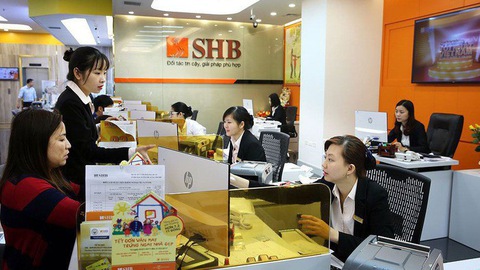_med.jpg) Economy
Economy


|
| The COVID-19 pandemic has caused Moody's to place Saigon Hanoi Commercial Joint Stock Bank (SHB) on review for downgrade. — Photo vneconomy.vn |
HÀ NỘI — Moody's Investors Service has placed the long-term ratings and assessments of three Vietnamese finance companies and two Vietnamese banks on review for downgrade.
The finance companies are VPBank Finance Company Limited (FE Credit), Home Credit Vietnam Finance Company Limited (HCV), and SHBANK Finance Company Limited (SHB Finance).
The banks are Vietnam Prosperity Joint Stock Commercial Bank (VP Bank), which fully owns FE Credit, and Saigon Hanoi Commercial Joint Stock Bank (SHB), which fully owns SHB Finance.
According to Moody’s, the rapid and widening spread of the COVID-19 outbreak, deteriorating global economic outlook, falling oil prices and asset price declines are creating a severe and extensive credit shock across many sectors, regions and markets. The consumer finance industry in Việt Nam is vulnerable to the disruptions given its risky borrower profile and heavy reliance on wholesale funding.
“Moody's regards the coronavirus outbreak as a social risk under its Environmental, Social, and Governance (ESG) framework, given the substantial implications for public health and safety.
"Today's action reflects the impact on Vietnamese consumer finance companies and their parent banks of the breadth and severity of the shock, and the deterioration in credit quality it has triggered,” the international rating agency said.
The review for downgrade of FE Credit, HCV and SHB Finance reflects Moody's expectation that the pandemic could have a negative impact on the companies' asset quality, profitability and liquidity.
Moody’s review for downgrade on VP Bank takes into consideration the negative implications of a potential deterioration in the credit profile of FE Credit for the group. While loans extended by FE Credit accounted for only 22 per cent of the consolidated loan book, the consumer finance subsidiary is a key revenue driver, contributing to about 43 per cent of the group's profit before tax in 2019.
Outside of VP Bank's exposure to consumer finance, Moody's also expects pressure on the quality of its loans to at-risk sectors, including wholesale and retail, and export and tourism-related sectors.
Moody's expects a deterioration in SHB Finance's credit profile will only have a modest impact on its parent, SHB, as the subsidiary accounted for just 1 per cent of consolidated total assets at the end of June 2019.
However, while SHB's asset quality improved in 2019 following a sizeable resolution of its legacy problem assets, the review for downgrade on the ratings and assessments of SHB reflects Moody's expectation that the bank's loans to small and medium-sized enterprises (SMEs) in Việt Nam – which accounted for 31 per cent of gross loans at the end of 2019 – will pose renewed asset risk, as these SMEs have limited financial buffers to withstand revenue shocks. Compared to other Vietnamese banks, SHB's loan loss reserves and capitalisation are weak and will provide little buffers against rising risks.
For FE Credit, HCV and SHB Finance, Moody's review for downgrade will focus on the companies' ability to manage credit and liquidity risk amid disruptions from the pandemic.
The review will also focus on the effectiveness of domestic and global policy responses in supporting economic activity, and whether the spread of the virus will result in further disruptions to economic activity in Việt Nam.
Moody's could downgrade the ratings if the companies' solvency and liquidity profile weaken materially.
For VP Bank and SHB, Moody's review for downgrade will focus on the quality of the banks' consumer finance loans as well as loans to borrowers operating in industries directly affected by the coronavirus outbreak.
Moody's could downgrade the ratings and assessments if the banks' baseline credit assessment (BCAs) are downgraded. The BCAs could be downgraded if the banks' solvency weakens as a result of a prolonged outbreak of the coronavirus. Any indication of a bank run or a limited access to market funds will also be negative for the banks' BCAs. — VNS




